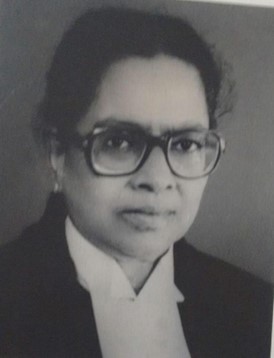Justice M. Fathima Beevi, born on 30 April 1927, was a distinguished Indian jurist who left an indelible mark on the legal landscape of the country. As the first female judge appointed to the Supreme Court of India and the first Muslim woman in the higher judiciaries, her career spanned various judicial roles, culminating in her service as the Governor of Tamil Nadu.
| Aspect | Details |
| Full Name | Fathima Beevi |
| Date of Birth | 30th April 1927 (as per public records) |
| Place of Birth | Pathanamthitta, Travancore, British India (present-day Kerala, India) |
| Career | – Enrolled as an advocate |
| – Appointed as a Munsiff in the Kerala Judicial Service | |
| – Became the Sub-Judge and Chief Judicial Magistrate | |
| – Appointed to the Kerala High Court as an additional judge | |
| – Elevated as the Chief Justice of the Kerala High Court | |
| – Appointed as a judge in the Supreme Court of India | |
| – Notable role as the first woman judge in the Supreme Court of India and in any apex court worldwide | |
| Career Highlights | – First woman to be appointed as a judge in the Supreme Court of India |
| – Significant contributions to legal jurisprudence | |
| Education | – Bachelor of Arts (BA) from Maharaja’s College, Ernakulam |
| – Bachelor of Laws (LLB) from Government Law College, Thiruvananthapuram | |
| Retirement Date | On April 29, 1992 Retired from the Supreme Court of India |
Early Life and Education
Born in Pathanamthitta, Kerala, to Annaveettil Meer Sahib and Khadeeja Beevi, Fathima Beevi’s academic journey began at Town School and Catholicate High School. She pursued her passion for chemistry, earning a BSc from Women’s College, Thiruvananthapuram. Her legal acumen developed at Government Law College, Thiruvananthapuram, where she earned her L.B. degree.
Legal Career
Enrolled as an Advocate in 1950, Beevi demonstrated exceptional prowess by topping the Bar Council exam the same year. Commencing her journey in the lower judiciary in Kerala, she rose through the ranks, holding pivotal positions such as Munsiff, Subordinate Judge, Chief Judicial Magistrate, and eventually District & Sessions Judge. Notably, in 1980, she became the Judicial Member of the Income Tax Appellate Tribunal.
Her elevation to the High Court as a Judge in 1983 marked a significant milestone. Beevi’s permanent appointment as a High Court Judge in 1984 paved the way for her historic appointment to the Supreme Court in 1989, where she served until her retirement in 1992.
Supreme Court of India
Justice Beevi’s tenure in the Supreme Court was marked by a commitment to justice, equality, and constitutional principles. Her contributions to landmark cases and legal discourse solidified her legacy as a trailblazer in the Indian judiciary.
Governor of Tamil Nadu
In 1997, she assumed the role of the Governor of Tamil Nadu, bringing her wealth of legal expertise to the constitutional realm. Her tenure faced scrutiny, notably in the Rajiv Gandhi assassination case, where she rejected mercy petitions. Controversies surrounding her acceptance of Jayalalithaa’s assembly majority led to her resignation, a decision validated by the Supreme Court.
Other Duties and Honors
Apart from her judicial roles, Justice Beevi served as the Chancellor of Madras University, Chairman of Kerala Commission for Backward Classes, and a member of the National Human Rights Commission. Her contributions earned her numerous accolades, including the Kerala Prabha Award and the Padma Bhushan posthumously in 2024.
Death and Legacy
Justice M. Fathima Beevi’s illustrious career concluded on 23 November 2023, leaving behind a legacy of legal excellence, groundbreaking achievements, and a commitment to upholding the principles of justice. Her impact on Indian jurisprudence continues to inspire aspiring legal minds and remains a testament to her enduring dedication to the legal profession.

